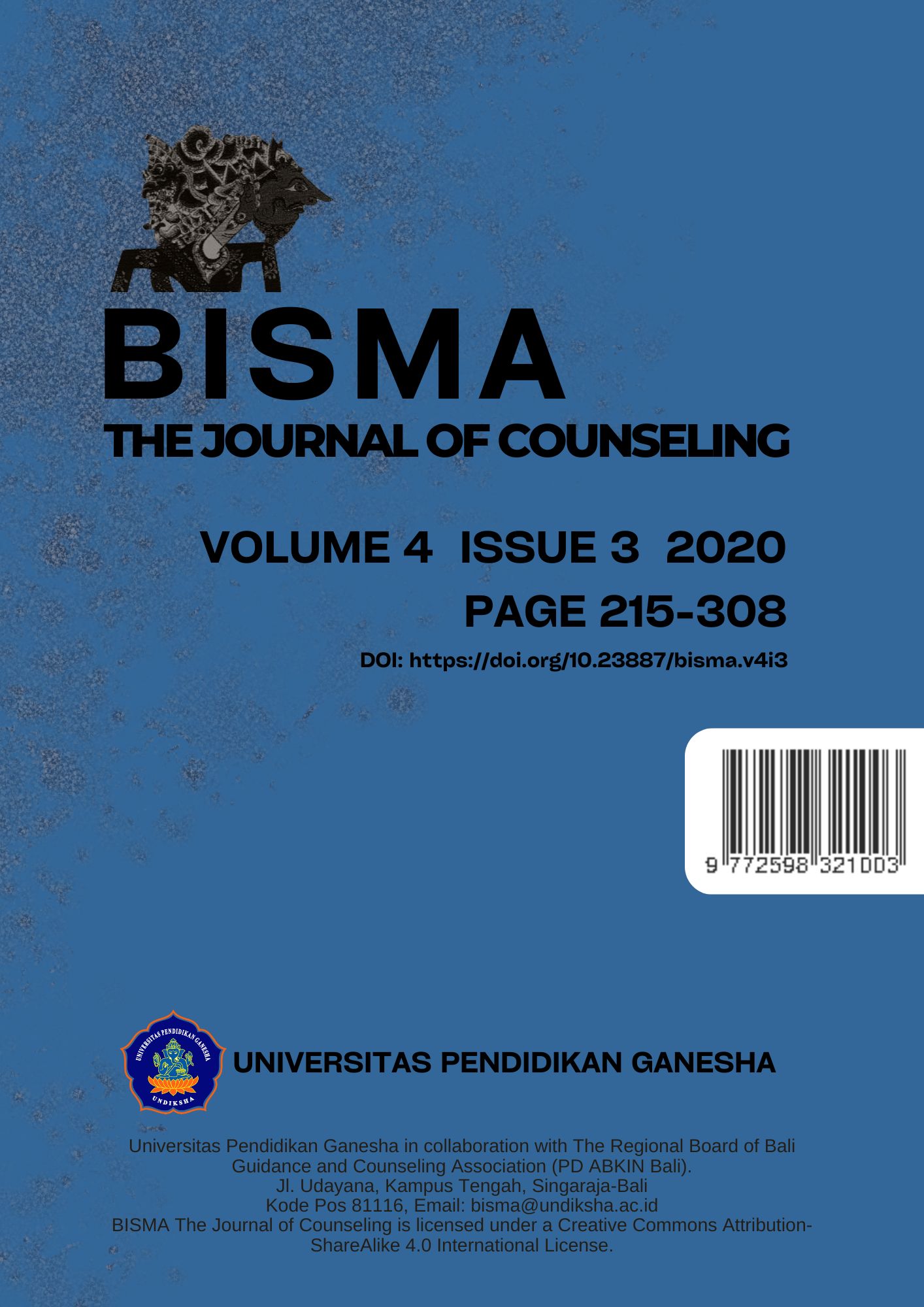The Role of Peer Counseling on Mental Health
DOI:
https://doi.org/10.23887/bisma.v4i3.29867Keywords:
Peer Counseling, Mental HealthAbstract
Adolescence is identical with the phase of searching for identity. Therefore, adolescents solve their own problems and have difficulty communicating because parents find it difficult to understand the desires of their teenage children and are frustrated dealing with them so counselors are needed to bridge the communication between parents and adolescents. This type of research is a descriptive study using explanatory research. Respondents used were good teens aged 18 years to 22 years. The purpose of the study was to examine the effect of Peer Counseling (X) and Mental Health (Y). Data were tested by multiple regression analysis using SPSS v 16.00 for Windows. The results of the analysis prove that the variable Peer Counseling gives an influence on mental health as indicated by the calculated F value of 38,709 with a significance value of 0.00 (or <0.05). Prearson correlation coefficient value is 0.668 or 66.8% which means a high level of influence between peer counseling and mental health variables.References
Astiti, S. P. (2019). Efektivitas Konseling Sebaya (Peer Counseling) dalam Menuntaskan Masalah Siswa. Indonesian Journal of Islamic Psychology, 1, 244-263.
Davidoff, L. L. (1991). Psikologi Suatu Pengantar II (II ed.). Jakarta: Erlangga.
Firdaus, V., & Handriyono. (2018). The Effect Of Management Change And Management Skill To Motivation Employee. International Journal Of Scientific & Technology Research, 103-106.
Gladding, S. T. (2012). Konseling Profesi Yang Menyeluruh. Jakarta Barat: Permata Puri Media.
Hurlock, E. B. (1991). Psikologi Perkembangan Suatu Pendekatan Sepanjang Rentang Kehidupan (5 ed.). Jakarta: Penerbit Erlangga.
Muslikah, Hariyadi, S., & Amin, Z. N. (2016). Pengembangan Model Peer Counseling Sebagai Media Pengalaman Praktik Konseling. Indonesian Journal of Guidance and Counseling: Theory and Application, 49-52.
Pieter, H. Z., & Lubis, N. L. (2010). Pengantar Psikologi Untuk Kebidanan (1 ed.). Jakarta: Prenada Media.
Prasetiawan, H. (2016). Konseling Teman Sebaya (Peer Counseling) Untuk Mereduksi Kecanduan Game Online. Counsellia: Jurnal Bimbingan dan Konseling, 6, 1-13.
Putri, A. W., Wibhawa, B., & Gutama, A. S. (2015). Kesehatan Mental Masyarakat Indonesia (Pengetahuan, Dan Keterbukaan Masyarakat Terhadap Gangguan Kesehatan Mental. Prosiding Ks: Riset & Pkm. 2, pp. 147-300. Sumedang: Universitas Padjadjaran. doi:10.24198/jppm.v2i2
Salmiati, Rosmawati, & Lestari, M. (2018). Peer Counselor Training Untuk Mencengah Perilaku Bullying. Indonesia Journal of Learning Education and Counseling, 62-69.
Santrock, J. W. (2007). Perkembangan Anak. Jakarta: Penerbit Erlangga.
Sugiono. (2018). Metode Penelitian Kuantitatif, Kualitatif, dan R&D (23 ed.). Bandung: Alfabeta.
Sugiyono. (2016). Metode Penelitian : kuantitatif, Kualitatif Dan R&D. Bandung: Alfabeta.
Supriyanto. (2009). Metodologi Riset Bisnis. Jakarta: Indeks.
Supriyanto. (2009). Metodologi Riset Bisnis (I ed.). Jakarta Barat: PT Indeks.









